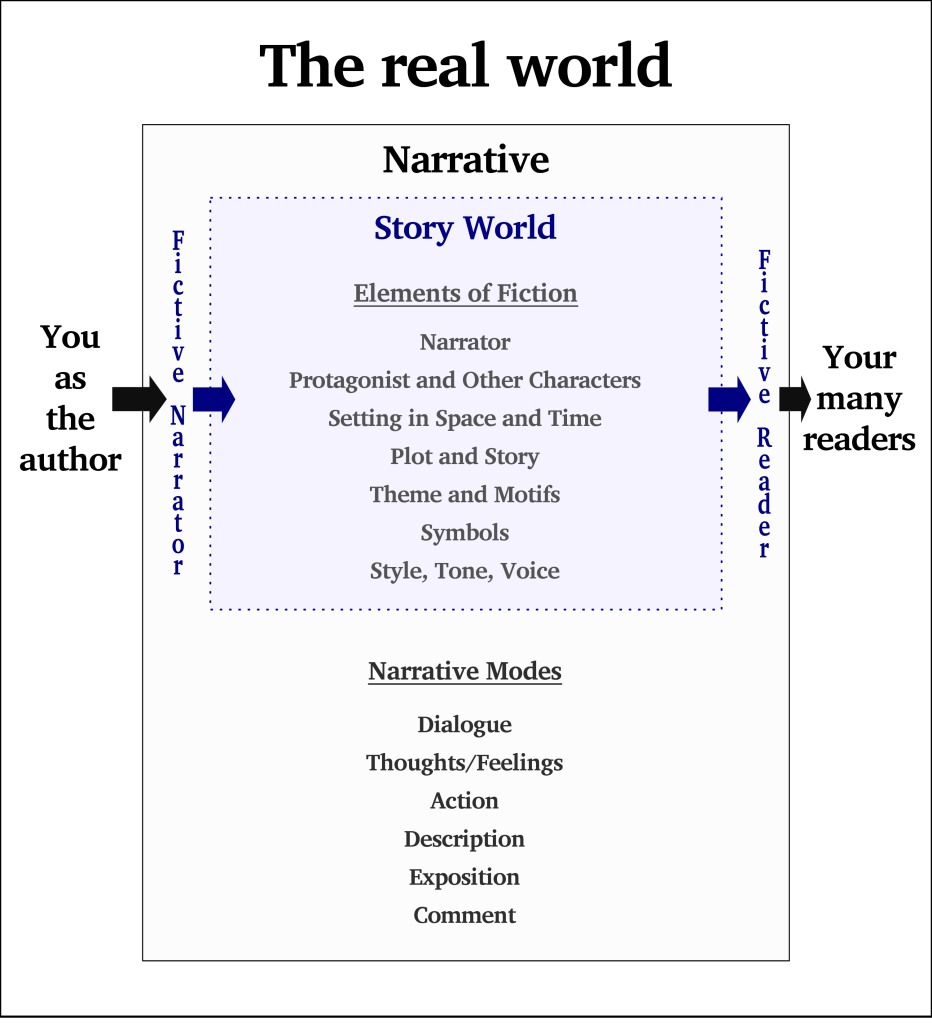Exploring The Depths Of A Homodiegetic Narrator
Understanding the concept of a homodiegetic narrator is essential for anyone interested in narrative techniques and storytelling. This unique type of narrator plays a crucial role in shaping the reader's experience and enhancing the emotional depth of a narrative. Through their personal perspectives, homodiegetic narrators not only present the events of the story but also provide their insights and emotions, making the narrative more relatable and engaging. As readers delve into the world of literature, recognizing the nuances of different narrators can significantly enrich their understanding of the text. This article will explore the characteristics, advantages, and examples of homodiegetic narrators, shedding light on their significance in modern storytelling.
In many literary works, the choice of narrator is a pivotal decision that influences the overall tone and direction of the story. A homodiegetic narrator, who is a character within the narrative, offers a unique lens through which the events unfold. Their experiences and interpretations bring the story to life, allowing readers to connect with the narrator on a more personal level. This article will also address common questions regarding homodiegetic narrators and illustrate their impact through various literary examples.
As we journey through the intricacies of the homodiegetic narrator, we will uncover why this narrative style is particularly effective in drawing readers into the characters' emotional worlds. By examining prominent literary works and the implications of using a homodiegetic narrator, we can better appreciate the complexities of storytelling and the power of personal perspective in literature.
What is a Homodiegetic Narrator?
A homodiegetic narrator is a character who is part of the story they are telling. This type of narrator shares their own experiences, thoughts, and feelings, enabling readers to gain a deeper understanding of their motivations and emotions. Unlike a heterodiegetic narrator, who remains outside of the narrative, a homodiegetic narrator is directly involved in the events they recount.
How Does a Homodiegetic Narrator Impact the Story?
The presence of a homodiegetic narrator can significantly influence the reader's perception of the narrative. By providing a subjective viewpoint, the narrator offers insights into their thoughts and feelings, which can evoke empathy and emotional connections. Readers are often drawn to the complexities of the narrator's character, making the story more compelling and immersive.
What Are the Advantages of Using a Homodiegetic Narrator?
- Increased Emotional Depth: A homodiegetic narrator's personal experiences can create a more profound emotional resonance with the audience.
- Subjectivity: Their perspective allows for a unique interpretation of events, giving readers a glimpse into the narrator's psyche.
- Character Development: The narrator’s growth and changes throughout the story can be explored in greater detail.
- Engagement: Readers are often more engaged with the story when they can relate to the narrator's experiences and emotions.
What Are Some Examples of Homodiegetic Narrators in Literature?
Numerous works of literature feature homodiegetic narrators, each bringing their unique touch to the narrative. Here are a few notable examples:
- Holden Caulfield in "The Catcher in the Rye" by J.D. Salinger: Holden’s distinctive voice and personal struggles make him a quintessential homodiegetic narrator.
- Nick Carraway in "The Great Gatsby" by F. Scott Fitzgerald: Nick’s perspective as both an observer and participant in the story shapes the reader's understanding of the characters and events.
- Offred in "The Handmaid’s Tale" by Margaret Atwood: Offred’s personal narrative provides insight into her experiences and the societal issues she faces.
In What Ways Can Readers Identify a Homodiegetic Narrator?
Identifying a homodiegetic narrator involves looking for specific characteristics that define their role within the narrative:
- First-Person Perspective: Homodiegetic narrators typically use first-person pronouns such as "I" and "my," indicating their involvement in the story.
- Personal Insights: They often share their thoughts, feelings, and reflections, allowing readers to see the world through their eyes.
- Character Development: Their experiences often lead to growth or change throughout the narrative.
How Does the Use of a Homodiegetic Narrator Affect Reader Engagement?
The use of a homodiegetic narrator can greatly enhance reader engagement. By drawing readers into the narrator's internal world, the narrative becomes more relatable and immersive. Readers are often more likely to empathize with the narrator's struggles and triumphs, creating a stronger connection to the story. This personal involvement can lead to a more enriching reading experience, as readers feel invested in the narrator's journey.
How Do Homodiegetic Narrators Contribute to Themes in Literature?
Homodiegetic narrators often play a significant role in exploring and conveying themes within a narrative. Their personal experiences can highlight various social, political, or emotional issues, making the themes more poignant and impactful. By sharing their perspectives, these narrators can challenge societal norms, question authority, and provoke thought among readers.
Can a Homodiegetic Narrator Be Unreliable?
Yes, a homodiegetic narrator can indeed be unreliable. Their subjective viewpoint may lead to biased interpretations of events or characters, which can create tension and intrigue within the story. This unreliability encourages readers to question the narrator's perspective and draw their conclusions. Such complexity adds depth to the narrative and can enhance the overall reading experience.
Conclusion: The Significance of Homodiegetic Narrators in Storytelling
In conclusion, the homodiegetic narrator is a powerful tool in literature that enriches storytelling through personal perspective and emotional depth. By understanding this narrative style, readers can gain a greater appreciation for the complexities of character development and thematic exploration. Whether through the eyes of a relatable protagonist or an unreliable narrator, the homodiegetic narrator invites readers to engage with the text on a deeper level, ultimately enhancing their literary experience.
Exploring The Legacy Of President Kimball In New Vegas
Discover The Future Of Home Comfort With Velux Smart Solutions
The Vital Pathways: What Carries Blood Away From The Heart

PPT Narration and focalization PowerPoint Presentation, free download ID2991934

Narratology Understanding Narration Wordsmithereens

Focalization Smart Writers Never Ignore It BookBaby Blog